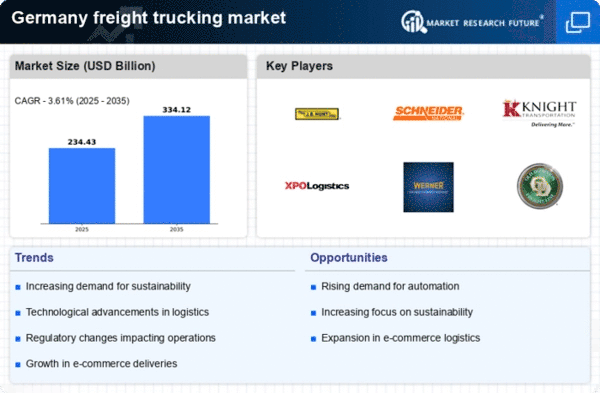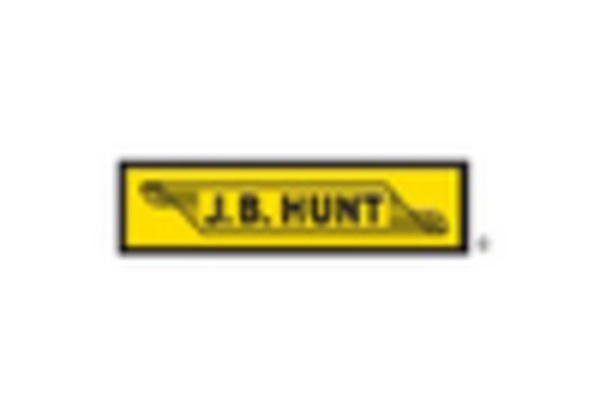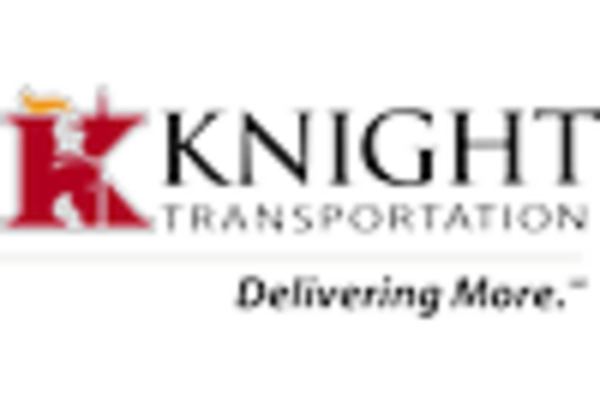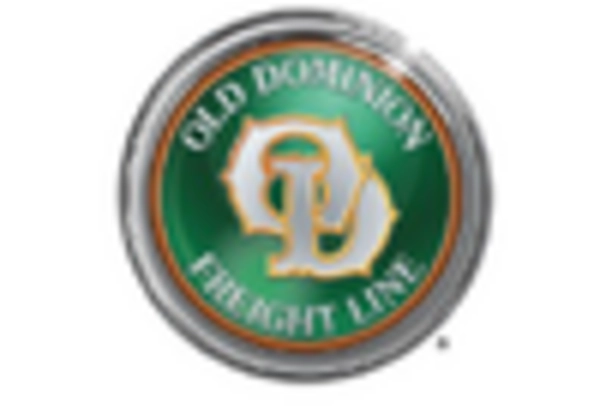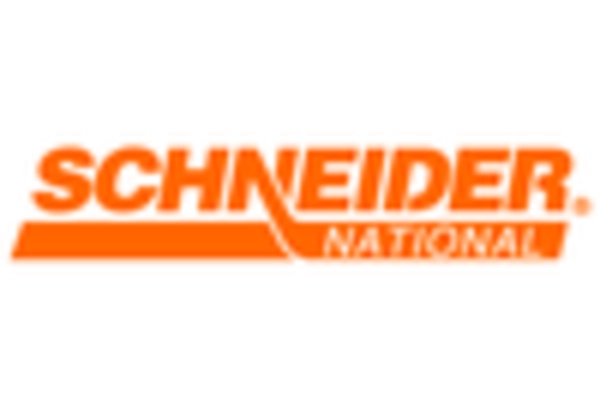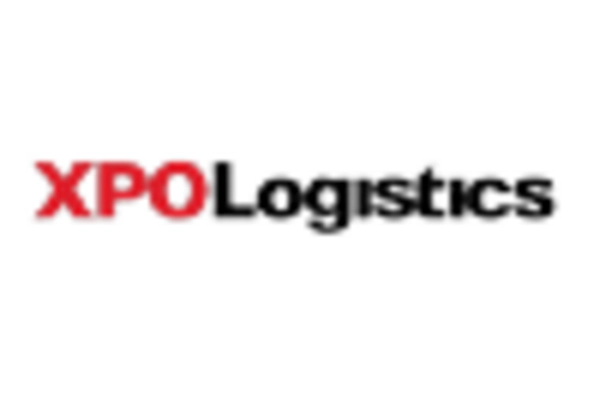Labor Shortages
The freight trucking market in Germany is currently grappling with a shortage of qualified drivers. As the workforce ages and fewer young individuals enter the profession, the industry faces challenges in meeting demand. In 2025, it is estimated that the driver shortage could reach 80,000 positions, which may hinder the growth of the freight trucking market. Companies are likely to invest in training programs and incentives to attract new talent. This labor crisis could lead to increased wages and improved working conditions, ultimately reshaping the dynamics of the trucking workforce and impacting service delivery.
E-commerce Growth
The rapid expansion of e-commerce in Germany is a pivotal driver. As online shopping continues to gain traction, logistics and transportation services are increasingly in demand. In 2025, e-commerce sales in Germany are projected to reach approximately €100 billion, necessitating efficient freight trucking solutions to meet consumer expectations for fast delivery. This surge in demand compels trucking companies to enhance their operational capabilities, invest in technology, and optimize routes. Consequently, the freight trucking market is likely to experience significant growth as businesses strive to keep pace with the evolving landscape of e-commerce.
Rising Fuel Costs
Fluctuations in fuel prices significantly impact the freight trucking market in Germany. As fuel costs rise, trucking companies face increased operational expenses, which can lead to higher freight rates. In 2025, diesel prices are projected to average around €1.50 per liter, prompting companies to seek more fuel-efficient vehicles and alternative energy sources. This situation may drive innovation within the industry, as companies explore electric and hybrid trucks to mitigate costs. The freight trucking market must adapt to these economic pressures, potentially reshaping pricing strategies and operational practices to maintain profitability.
Infrastructure Development
Ongoing investments in transportation infrastructure in Germany are crucial for the freight trucking market. The government has allocated substantial funds for the enhancement of road networks, bridges, and logistics hubs. In 2025, it is estimated that infrastructure spending will exceed €10 billion, aimed at improving connectivity and reducing transit times. This development not only facilitates smoother operations for trucking companies but also enhances the overall efficiency of the supply chain. As infrastructure improves, the freight trucking market is expected to benefit from reduced operational costs and increased reliability, making it a vital component of the logistics ecosystem.
Technological Advancements
Technological innovations are transforming the freight trucking market in Germany. The adoption of advanced logistics software, GPS tracking, and automated systems enhances operational efficiency and transparency. In 2025, it is anticipated that investments in technology will account for over €2 billion within the sector. These advancements enable trucking companies to optimize routes, reduce fuel consumption, and improve customer service. As technology continues to evolve, the freight trucking market is likely to experience increased competition, with companies leveraging these tools to gain a competitive edge and meet the demands of a rapidly changing logistics environment.


